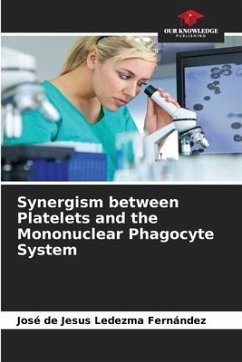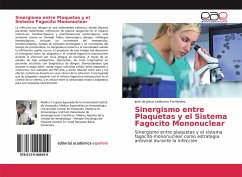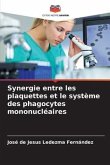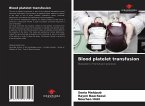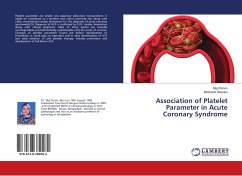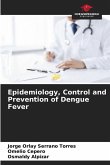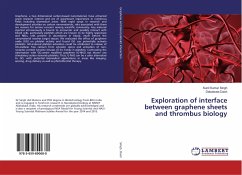Dengue infection is a systemic disease, where some patients manifest infiltration of blood plasma into the interstitial space, thrombocytopenia and haemorrhagic manifestations; this severe syndrome is called dengue haemorrhagic fever. Haematological findings include increased haematocrit, thrombocytopenia, prolonged bleeding time and increased prothrombin time. Temperature returns to normal when capillary infiltration occurs. The purpose of this work was to demonstrate the synergism between platelets and the phagocytic-mononuclear system during dengue virus infection in school children. Through a prospective, descriptive, longitudinal study in school patients diagnosed with dengue. It was shown that during the febrile stage, there is greater cellular activity between platelets and monocytes, with an increase in TNF-alpha, and there is a relationship between this and the systemic effects during the clinical course of the infection. The conclusion is that platelets cooperate with the phagocytic-mononuclear system in the control of viraemia, and is a link between innate and adaptive immunity for a neutralising response.
Bitte wählen Sie Ihr Anliegen aus.
Rechnungen
Retourenschein anfordern
Bestellstatus
Storno

